- Home
- Fern Michaels
Cinders to Satin
Cinders to Satin Read online
His hand glided down her elegant throat, paving the way for his lips. He wanted to kiss all of her, to taste her inch by inch, taking her between his lips, his teeth, nibbling and feeding his appetite for her.
Her nightgown parted beneath his fingers; he pushed it aside, baring the hollow of her neck and the soft roundness of her shoulder. He felt her tremble beneath his touch, heard a faint moaning sound and knew that she was as close to the edge of the great abyss as he was. He meant to carry her up and over with him, falling, falling, into a place where the hungers of the body would be met.
He was pleased to know he was affecting her with his caresses, drawing her into the swift currents of passion . . .
Books by Fern Michaels
The Blossom Sisters
Balancing Act
Tuesday’s Child
Betrayal
Southern Comfort
To Taste the Wine
Sins of the Flesh
Sins of Omission
Return to Sender
Mr. and Miss Anonymous
Up Close and Personal
Fool Me Once
Picture Perfect
About Face
The Future Scrolls
Kentucky Sunrise
Kentucky Heat
Kentucky Rich
Plain Jane
Charming Lily
What You Wish For
The Guest List
Listen to Your Heart
Celebration
Yesterday
Finders Keepers
Annie’s Rainbow
Sara’s Song
Vegas Sunrise
Vegas Heat
Vegas Rich
Whitefire
Wish List
Dear Emily
Christmas at Timberwoods
The Godmothers Series:
Classfied
Breaking News
Deadline
Late Edition
Exclusive
The Scoop
The Sisterhood Novels:
Gotcha!
Home Free
Déjà Vu
Cross Roads
Game Over
Deadly Deals
Vanishing Act
Razor Sharp
Under the Radar
Final Justice
Collateral Damage
Fast Track
Hokus Pokus
Hide and Seek
Free Fall
Lethal Justice
Sweet Revenge
The Jury
Vendetta
Payback
Weekend Warriors
E-Book Exclusives:
Cinders to Satin
For All Their Lives
Fancy Dancer
Texas Heat
Texas Rich
Texas Fury
Texas Sunrise
Anthologies:
Secret Santa
A Winter Wonderland
I’ll Be Home for Christmas
Making Spirits Bright
Holiday Magic
Snow Angels
Silver Bells
Comfort and Joy
Sugar and Spice
Let it Snow
A Gift of Joy
Five Golden Rings
Deck the Halls
Jingle All the Way
FERN MICHAELS
Cinders to Satin
eKensington
KENSINGTON PUBLISHING CORP.
www.kensingtonbooks.com
All copyrighted material within is Attributor Protected.
Table of Contents
Books by Fern Michaels
Title Page
Book One
Chapter One
Chapter Two
Chapter Three
Chapter Four
Chapter Five
Chapter Six
Chapter Seven
Chapter Eight
Book Two
Chapter Nine
Chapter Ten
Chapter Eleven
Chapter Twelve
Chapter Thirteen
Chapter Fourteen
Chapter Fifteen
Chapter Sixteen
Chapter Seventeen
Chapter Eighteen
Chapter Nineteen
Chapter Twenty
Chapter Twenty-One
Chapter Twenty-Two
Book Three
Chapter Twenty-Three
Chapter Twenty-Four
Chapter Twenty-Five
Chapter Twenty-Six
Chapter Twenty-Seven
Chapter Twenty-Eight
Chapter Twenty-nine
Chapter Thirty
Chapter Thirty-One
Chapter Thirty-Two
BLINDSIDED
Copyright Page
Book One
Chapter One
It was a peculiar dark that fell over Dublin that night during the long hours before dawn. Damp mists, like the wraiths of souls tormented, hung low over the narrow, cobbled streets, their specter fingers stretching into doorways and rising to dissipate vaporously near the flame of the gas lights. There was a chill in the air, but it wasn’t the kind of raw cold that was usual for early March. Tonight there was a promise of the coming spring.
A small figure dodged in and out of the shadows, running as though the night were reaching out to clutch at her. She carried an ungainly grocer’s basket close to her thin body, struggling against the weight of it as she searched for a particular alley, praying to find it quickly so she could scurry into its obliterating darkness.
Callie James held her breath, not daring to make a sound, choking back the need to take in great gulps of air as she crouched behind an abandoned cart whose iron-rimmed wheels had long ago been removed.
The space between the cart and the back wall of a local pub was narrow and more cramped than she had anticipated, yet she dared not make a move to reposition herself. She listened intently and could hear them, her pursuers, running along the cobbled street, calling in muted shouts to one another, questioning for signs of the “filthy little robber.”
The voices came closer, almost to the entrance of the alley, and Callie’s heart beat a wild tattoo. If they came up the alley, she would be trapped, something she had not considered when choosing her hidey-hole. Fear gripped her. She felt her hair standing on end, and her eyes squeezed shut against her fate.
Even as she prayed, she cursed herself for her impetuosity. How had she dared to steal the grocer’s basket that had stood outside the market awaiting delivery? In these poor times here in Ireland only the rich could enjoy such luxuries as this basket held. Even through her terror Callie could smell the sweet salty perfume of the smoked ham and the ripe aroma of oranges. And the bread. Dear God, the blessed bread! Huge loaves of round, crusty dough still warm from the oven. The temptation had been too great—the hunger too painful.
The penalty for stealing was death by hanging, a justice meted out under an English martial law whose tenuous grasp on law and order was maintained by making examples of felons. That’s what she was now, Callie realized with shame—a felon. And if caught, no amount of pleading or claiming extenuating circumstances would save her. The grocer was an Englishman, that hated breed of men who sucked life from Ireland with their laws and edicts. While the Irish starved because of the potato blight, the English dressed in their finery and ate their fill each and every day. There would be no pity for her, no forgiveness from those who had full bellies and who possessed no understanding of starvation. Others had died at the end of the rope—men, women, and children. Only in punishment could the Irish find equality in the eyes of the English.
Boots scraped upon the cobbles, the sounds coming closer and closer. Now someone was a
ctually entering the alley! She squeezed her eyes tighter, not daring to open them to face her horror. Oh, Mother of Jesus, why had she taken the basket? Callie thought of leaving it and making a run for it. Unencumbered by its weight, she might have a chance to save herself. Moving to put her burden aside, she heard the rustle of tissue paper, betraying the fact that there were eggs within. Eggs for the little ones. Food. That was why the unguarded basket had been such a temptation. Eight in the house and only her own poor pittance of a salary from the textile mill to support them.
Thomas James, Callie’s father, had lain in bed for nearly two years complaining of back pains, malingering and defeated, refusing to seek even the lightest employment. Her grandfather, old Mack James, was too old to work, and no one would hire him.
Only her mother, Peggy James, had any backbone—in Callie’s opinion—but her work at the mill had been interrupted by the birth of the twins. Owing to the lack of food and an unclean birthing, Peggy was a sick woman. Bridget and Billy, the two-year-old twins, and Hallie and Georgie, now eight and nine, and still another babe on the way, Callie thought in disgust for her father’s lusty inclinations. Too sick to work but not dead enough to hinder him from putting another babe in Peggy’s belly. And him strutting about like a cock o’ the walk, with no thought as to how this new mouth was to be fed!
The heavy tread of boots brought Callie back to her immediate terror. They approached closer still; someone was indeed in the alley. She held her breath, her hands covering her face against the dread of seeing the grocer’s plump, well-fed face when he reached through the shadows to seize her. One step and then another, the beat of a purposeful march. He finally reached the dilapidated wagon and stubbed his foot against it. With a mighty heave he tilted the cart, and Callie anticipated those heavy butcher’s hands capturing her, holding her like a trapped bird, threatening to crush out her existence.
She heard the cart topple, and her hands flew away from her eyes in wide-eyed panic. Blinded by the sudden light of the flare he carried, she couldn’t see beyond it to the face of the man who had discovered her hiding place.
A shout came from the street, calling into the alley. “Have you found the little barstard, sir?” It was the voice of the grocer, harsh and out of breath, yet Callie could not mistake his tone of respect when he spoke to the man with the flare.
The sound of his voice jolted her, so near, booming down at her, and it was a moment before she could grasp his answer to the grocer. “Nothing in here, man! Just an overturned dogcart!”
“Well, thank ye for your assistance, Mr. Kenyon. I wouldn’t want to trouble you further on my account. The little thief must’ve run the other way. I’ll get me goods back, don’t you worry, sir. No guttersnipe is going to get away with six pounds of me best wares. There ain’t another ham the likes of that one in all Dublin. It was brought in special for his Lordship, Magistrate Rawlings.”
“Good luck to you then,” her savior’s voice replied. It was the most wonderful sound she’d ever heard.
Now that the flare wasn’t being held directly in front of her, Callie was able to make a quick appraisal. His boots were knee high and polished to a shine. A gentleman’s boots. The light buff of his trousers clung to his long, lean legs, and the whiteness of his shirt showed in stark relief against the dark of his hair and the rich cranberry of his coat. But it was his face that held her attention: the lean jaw, the smooth wide brow. The kindness in his light-colored eyes. His finely drawn lips twisted into a wry smile, lending a suggestion of cruelty that contradicted the expression in his eyes. No, not cruelty, Callie amended. Rather a strength of character, a type of righteousness, a possession of authority. “Mr. Kenyon” the grocer had called him, she now remembered. He lifted the flare higher, drawing it away from her.
Byrch Kenyon stood transfixed by the sight of Callie crouching against the tavern wall, defending her stolen basket. He had expected to find a dirty-faced street urchin with hard, defiant eyes. Anything but this terrorized young girl with her bright clean face and much-mended shawl. She huddled like an animal who has heard the snap of the trap shut behind her.
The glow from the flare caught the red glints in her chestnut hair and lit her pale, unblemished skin. A pretty Irish colleen. Large, luminous eyes; a firm, softly rounded chin; cheeks a bit sunken as were all of Ireland’s children. It was her expression which struck him. Her full, child’s mouth was set in a pout, her sky-colored eyes meeting his in a wide, unblinking stare. He felt himself smiling, no, laughing at her spunk. Here she hid, a thief, and yet she was flashing her defiance, daring him to present her to the Englishman’s justice.
“Don’t try to appeal to me with your sweet expression, colleen,” he said sarcastically. “Regardless of how you plead, I’ll not turn you into the law.”
“If you think I’ll be thanking you, you’re sadly mistaken,” Callie sniped in her soft brogue. She wished her voice were more steady and that her body would quit its trembling.
“Oh, I can see that,” he told her, reaching to help her to her feet. “Gratitude would be too much to expect.” Despite her shrinking away from him, he grasped her by the elbow and raised her up. He was struck by the thinness of her arm and her diminutive height. “How old are you? Twelve? Thirteen?”
Callie bristled at this affront to her womanliness. “I’m no child thank you, sir. I’ll be sixteen in a month’s time.”
“Oh, that old, are you? Pardon, madame. And where, may I ask, are you off to with your pilfered goods? Or do you plan to stay here and devour that entire basket here and now?”
Callie looked at him suspiciously. “And why would you be asking? So you could turn me in along with my entire family?”
“I merely asked because you’re not the only thief skulking around in the shadows of Dublin. You’ll be lucky to carry that basket two streets without it being stolen from you!” His hand still cupped her elbow, and he could feel the tremors running through her. “You’re shaking like a leaf in a storm.”
“Does that surprise you, sir?” She jerked her arm out of his grasp. “I’ve just gotten away with my life!”
“Your bravado isn’t the mark of someone who has just escaped with her life. Not the way your eyes flash and your tongue bites. You’re a feisty young miss, do you know that?” He scowled, clearly annoyed.
“And what’s it to you?” Immediately she regretted her words. He had helped her, and here she was giving him lip. Her mouth always got her into trouble. What if she angered him into calling the grocer? Or worse, what if he dragged her to the patrolling constable? As usual, words of apology did not come easily to Callie James. To show him her regret, she smiled up at him.
“Feisty and charming.” He laughed easily, amending his earlier statement.
Callie could see his strong white teeth when he laughed, and she liked the way he threw back his head. He was tall, very tall, and his clothes were fine and well-tailored. He was a gentleman, no doubt about it. She understood why the grocer had spoken to him with respect.
“Will you tell me your name and what you’re doing about the streets at this hour?”
“No, I don’t think so,” Callie answered, bending to retrieve her basket. “How am I to know you won’t change your mind and turn me in?”
That seemed to strike him funny. “It’s evident we’re strangers. If you knew me better, you’d have no doubt of my opinions concerning the English Law we suffer. You’ll never make it through the streets with that heavy booty, you know. You may as well leave it here and get home with you.”
Callie drew herself up to her full five feet one inch, facing him brazenly. This was no time to back down. “I dragged it all the way here from the grocer’s, didn’t I? And at a full run, I might add. I’ll make it home, all right, or die trying. I’ve a family to consider.”
“A little thing like yourself with a family?” he questioned.
“Well, I do too! They’re my own brothers and sisters.”
“Come along, then.
I’ll walk with you. Just to be certain the grocer and his boy don’t come back this way.”
Callie hesitated and saw his logic. He was right. She wouldn’t have to let him come all the way with her, just far enough to get out of this neighborhood. And if he tried anything with her, he’d be sorry. Her shoes were stout and their soles thick. He’d feel them where they’d hurt the most if he got any funny ideas in his head. “All right, I accept your offer. Seeing as how it means so much to you.” He laughed again, and she scowled. Callie ignored him and picked up her basket, falling into step beside him.
They’d not gone a block when she was panting with effort. The basket must have weighed thirty pounds. Breaking the silence between them, he said, “If I tell you my name, will you let me help you carry your hard-earned goods?”
“I already know your name. It’s Kenyon. Mr. Kenyon. However,” she turned and dumped the basket unceremoniously into his arms, “I’d be obliged if you carried it a bit of the way, Mr. Kenyon.”
“Byrch. Byrch Kenyon.” He looked for recognition of his name but none was forthcoming.
“Any man willing to tell his name under these circumstances can’t be all bad,” Callie said. “Kenyon is a fine old Dublin handle. But Byrch! Why would anyone pin a moniker like that on a fine Christian lad? Hadn’t your mother heard of good saintly names like Patrick or Sean?”
“And who says I’m a fine Christian lad?” This little piece of baggage had a mouth on her!
“You’re Irish, aren’t you? Or are you?” Callie turned and eyed him quizzically. “You speak with a fair lilt of the auld sod, but there’s something else besides.”
“I’m here in Dublin visiting friends,” he answered smoothly.
“Here!” Callie drew up short, swaying her shoulder into his tall frame. “You’re not English, are you?” she demanded. Not for anything would she associate with an Englishman.
“No. American. My father is Irish. I’m here in Dublin waiting passage back to Liverpool. Then I’m bound back to America.”

 Safe and Sound
Safe and Sound Santa Cruise
Santa Cruise Deep Harbor
Deep Harbor Truth and Justice
Truth and Justice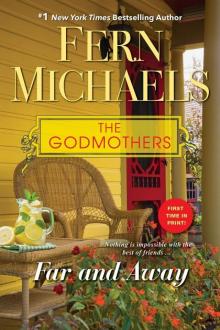 Far and Away
Far and Away The Christmas Stocking
The Christmas Stocking 18. Cross Roads
18. Cross Roads Texas Sunrise
Texas Sunrise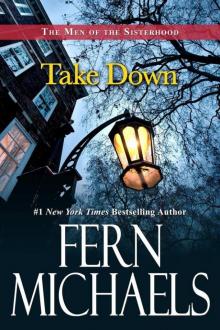 Take Down (The Men of the Sisterhood)
Take Down (The Men of the Sisterhood) Sleigh Bells
Sleigh Bells A Golden Tree
A Golden Tree About Face
About Face To Taste The Wine
To Taste The Wine Texas Rich
Texas Rich 15. Vanishing Act
15. Vanishing Act To Have and to Hold
To Have and to Hold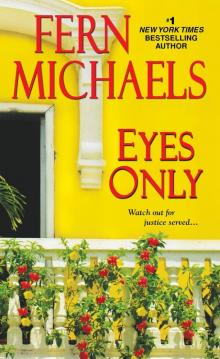 Eyes Only
Eyes Only Fearless
Fearless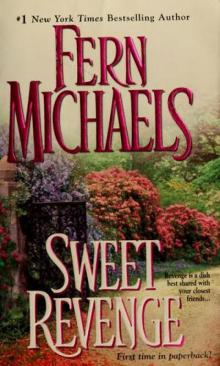 5. Sweet Revenge
5. Sweet Revenge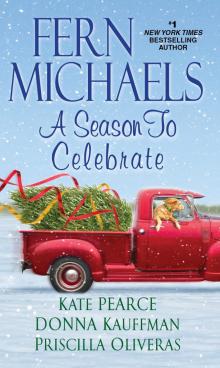 A Season to Celebrate
A Season to Celebrate Cut and Run
Cut and Run 8. Hide and Seek
8. Hide and Seek A Snowy Little Christmas
A Snowy Little Christmas Hidden
Hidden Sins of the Flesh
Sins of the Flesh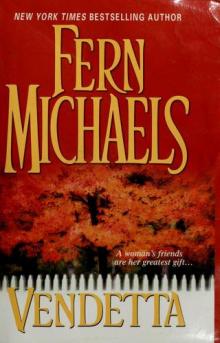 3. Vendetta
3. Vendetta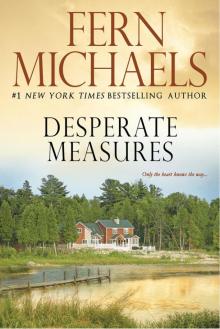 Desperate Measures
Desperate Measures No Way Out
No Way Out Late Edition
Late Edition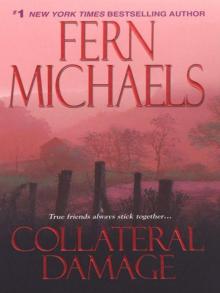 11. Collateral Damage
11. Collateral Damage Texas Heat
Texas Heat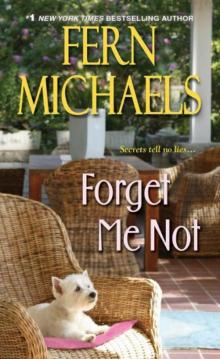 Forget Me Not
Forget Me Not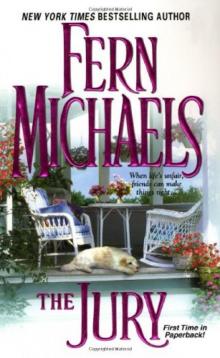 4. The Jury
4. The Jury 16. Deadly Deals
16. Deadly Deals Plain Jane
Plain Jane Crown Jewel
Crown Jewel Sweet Vengeance
Sweet Vengeance 19. Deja Vu
19. Deja Vu Point Blank
Point Blank Truth or Dare
Truth or Dare Family Blessings (Cisco Family)
Family Blessings (Cisco Family)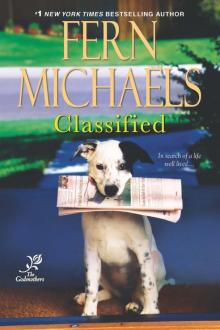 Classified
Classified The Blossom Sisters
The Blossom Sisters Spirited Away
Spirited Away Wishes for Christmas
Wishes for Christmas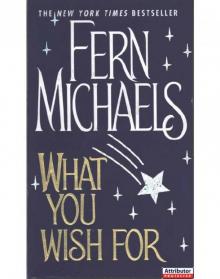 What You Wish For
What You Wish For Fancy Dancer
Fancy Dancer 14. Razor Sharp
14. Razor Sharp I'll Be Home for Christmas
I'll Be Home for Christmas Vegas Sunrise
Vegas Sunrise Trading Places
Trading Places Charming Lily
Charming Lily Cross Roads
Cross Roads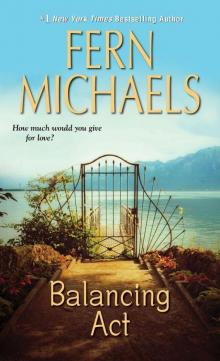 Balancing Act
Balancing Act Cinders to Satin
Cinders to Satin A Family Affair
A Family Affair A Winter Wonderland
A Winter Wonderland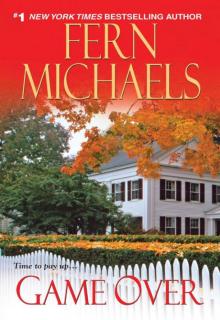 17. Game Over
17. Game Over Hokus Pokus (The Sisterhood: Rules of the Game, Book 2)
Hokus Pokus (The Sisterhood: Rules of the Game, Book 2)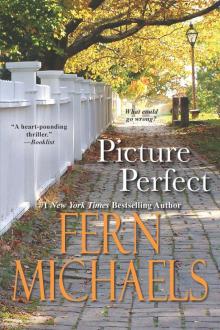 Picture Perfect
Picture Perfect Dear Emily
Dear Emily 9. Hokus Pokus
9. Hokus Pokus Cross Roads - Sisterhood book 18
Cross Roads - Sisterhood book 18 Blindsided
Blindsided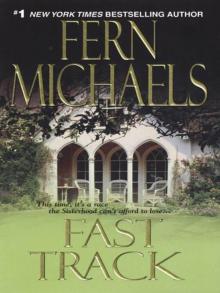 Fast Track
Fast Track Hey, Good Looking
Hey, Good Looking Kentucky Heat
Kentucky Heat Yesterday
Yesterday Weekend Warriors
Weekend Warriors Coming Home for Christmas
Coming Home for Christmas Vanishing Act
Vanishing Act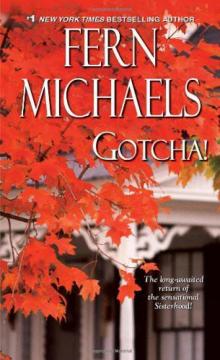 Gotcha!
Gotcha! Home Free
Home Free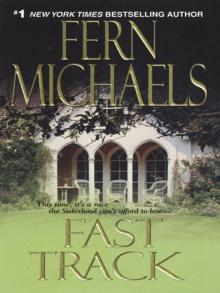 Fast Track (The Sisterhood: Rules of the Game, Book 3)
Fast Track (The Sisterhood: Rules of the Game, Book 3) Holly and Ivy
Holly and Ivy Fool Me Once
Fool Me Once The Most Wonderful Time
The Most Wonderful Time Exclusive
Exclusive Jingle All the Way
Jingle All the Way Vendetta
Vendetta Kentucky Rich
Kentucky Rich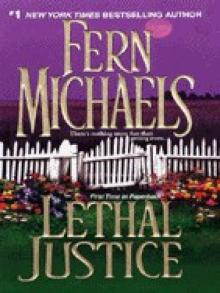 Lethal Justice
Lethal Justice The Future Scrolls
The Future Scrolls Deja Vu
Deja Vu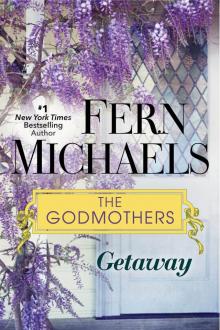 Getaway
Getaway Mistletoe Magic
Mistletoe Magic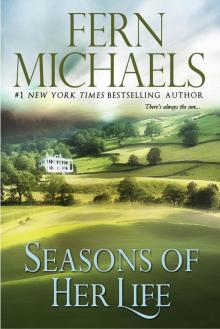 Seasons of Her Life
Seasons of Her Life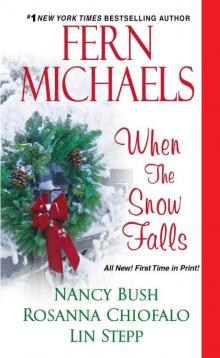 When the Snow Falls
When the Snow Falls Breaking News
Breaking News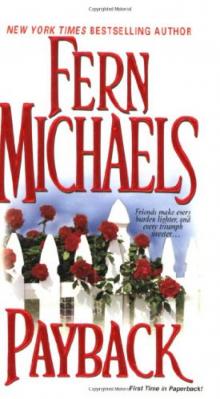 2. Payback
2. Payback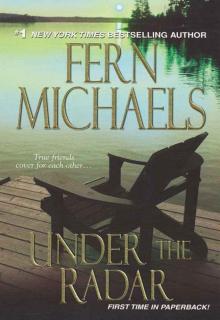 Under the Radar
Under the Radar Serendipity
Serendipity High Stakes
High Stakes Need to Know
Need to Know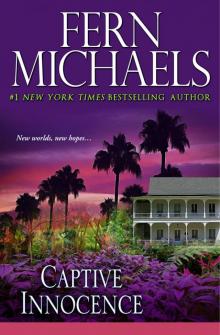 Captive Innocence
Captive Innocence Countdown
Countdown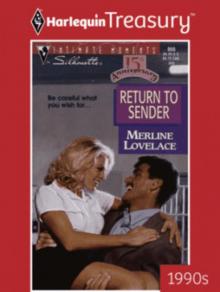 Return to Sender
Return to Sender Fast and Loose
Fast and Loose Sara's Song
Sara's Song Razor Sharp
Razor Sharp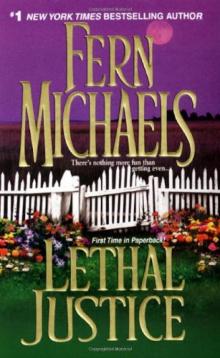 6. Lethal Justice
6. Lethal Justice Hokus Pokus
Hokus Pokus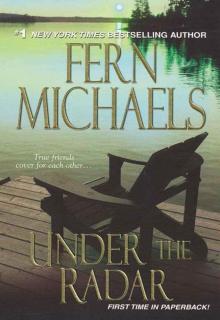 13. Under the Radar
13. Under the Radar 7. Free Fall
7. Free Fall Collateral Damage
Collateral Damage Whitefire
Whitefire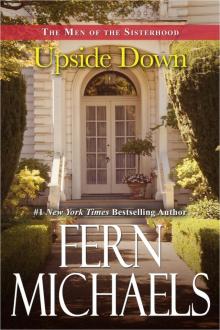 Upside Down
Upside Down Southern Comfort
Southern Comfort Celebration
Celebration 1. Weekend Warriors
1. Weekend Warriors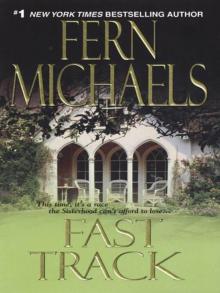 10. Fast Track
10. Fast Track Making Spirits Bright
Making Spirits Bright Silver Bells
Silver Bells Holiday Magic
Holiday Magic Christmas At Timberwoods
Christmas At Timberwoods Captive Embraces
Captive Embraces Winter Wishes
Winter Wishes Listen To Your Heart
Listen To Your Heart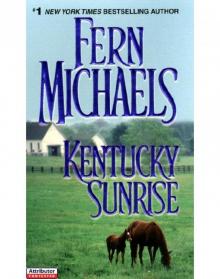 Kentucky Sunrise
Kentucky Sunrise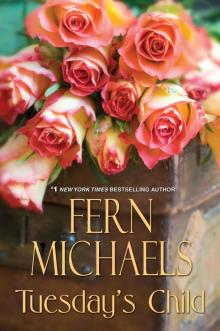 Tuesday's Child
Tuesday's Child Final Justice
Final Justice Free Fall
Free Fall No Safe Secret
No Safe Secret Deadly Deals
Deadly Deals Wish List
Wish List Pretty Woman
Pretty Woman Payback
Payback Mr. And Miss Anonymous
Mr. And Miss Anonymous The Scoop
The Scoop In Plain Sight
In Plain Sight The Nosy Neighbor
The Nosy Neighbor Final Justice: Sisterhood Series #5
Final Justice: Sisterhood Series #5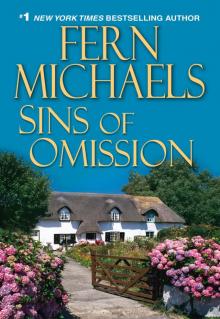 Sins of Omission
Sins of Omission The Jury
The Jury Captive Secrets
Captive Secrets Hide and Seek (The Sisterhood: Rules of the Game, Book 1)
Hide and Seek (The Sisterhood: Rules of the Game, Book 1) Crash And Burn
Crash And Burn Sweet Revenge
Sweet Revenge Secret Santa
Secret Santa 20. Home Free
20. Home Free Game Over
Game Over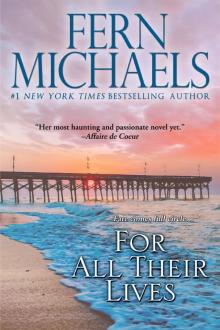 For All Their Lives
For All Their Lives 12. Final Justice
12. Final Justice Hideaway
Hideaway Perfect Match
Perfect Match